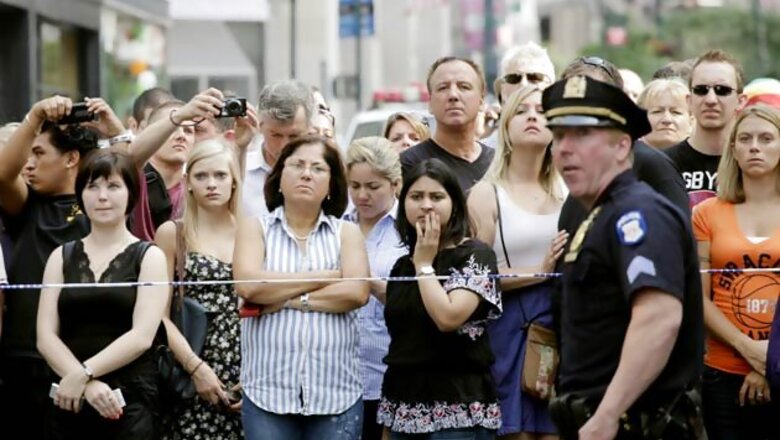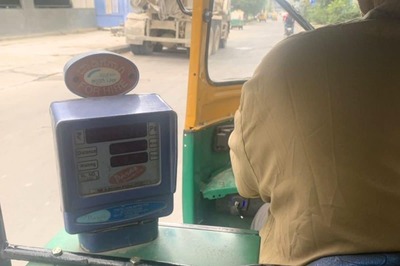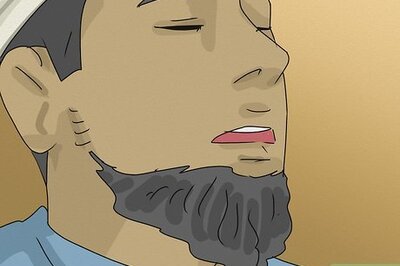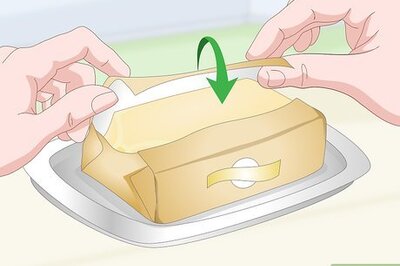
views
New York: All nine of the bystanders wounded on Friday near the Empire State Building were hit by police gunfire, six by bullet fragments, when officers fatally shot a man who had killed a former coworker, authorities confirmed on Saturday.
The shooting was a rare example of the drawbacks posed by so-called hollow-point bullets. The New York Police Department started using those 14 years ago to reduce the likelihood of hitting bystanders, even though in this case the use of such bullets may have resulted in the opposite effect.
The bullets have become standard issue for many law enforcement agencies, including the FBI, as a replacement for traditional bullets that can pass right through a suspect.
They are considered safer for bystanders because hollow-point bullets are designed to mushroom when they strike a person. They cause massive injuries, but rarely exit.
However, the hollow-point bullets are more prone to fragment or ricochet when they hit a hard object such as the concrete planters used at the popular tourist attraction as security barriers against terrorist attacks, studies show.
Six of the nine bystanders wounded on Friday were hit by shrapnel caused when the hollow bullets fragmented as they ricocheted off the planters, and three by bullets, police said.
New York police spokesman Paul Browne confirmed that the two officers who shot out-of-work fashion designer Jeffrey Johnson used hollow-point bullets.
Johnson, said by officials to have been laid off from his job last year, had fatally shot a former colleague with whom he had been feuding.
Former New York Police Commissioner Bill Bratton said in situations like the one the two officers faced - an armed gunman waving a pistol on a crowded street - stopping the attacker swiftly is the primary goal.
"The idea (of using hollow-point bullets) is to move quickly, to stop the threat," he told Reuters. "You can knock someone down with one or two rounds a lot of the time."
Until 1998, the department had used what are known as full-metal-jacket bullets, which, enveloped in a thin layer of copper, often pass through a suspect and hit bystanders.
"As in all things with weapons and ammunition, there's certain tradeoffs that you have to make," Bratton said of the shrapnel created by police bullets.
A police department report released in 1998 compared collateral damage in police shootings using traditional and hollow-point bullets. It found that traditional bullets passed through bodies far more frequently than hollow-points.
A committee appointed to evaluate the report recommended to a board that handles complaints about the police that the department move to hollow points. The committee members spent a day at a New York police shooting range firing hollow-point and full-metal-jacket bullets into a gelatinous substance.
They concluded that the hollow-points caused less collateral damage except in one case.
"The one exception was a hollow-point which hit a frozen bit of the gelatin: it did not explode, but left minor fragments near the path of the bullet," their report said.
On Friday, the two officers, Craig Matthews and Robert Sinishtaj, fired on Johnson who appeared in a dramatic video to be drawing his .45-caliber pistol as he walked toward them.
Johnson could be seen in the video doubling over, wobbling and then collapsing while bystanders scattered.
Three of the nine wounded bystanders remain hospitalised, though none of the injuries are thought to be life threatening, police said. The other six were treated and released.
Matthews and Sinishtaj will be assigned to administrative duty pending a police review of the shooting, a standard procedure whenever an officer discharges his weapon in the line of duty. The officers were also treated for trauma.



















Comments
0 comment